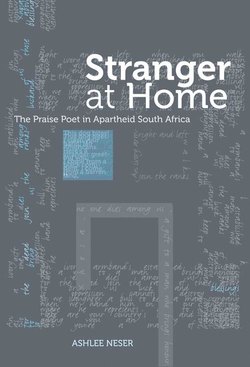Stranger at Home

Реклама. ООО «ЛитРес», ИНН: 7719571260.
Оглавление
Ashlee Neser. Stranger at Home
Отрывок из книги
Stranger at Home
The Praise Poet in Apartheid South Africa
.....
Scholars agree that praise poets act as mediators who effect change by strengthening existing bonds and encouraging actions and attitudes based on values extrapolated from (reinvented) histories. The poetry itself is energetic, rousing and interspersed with bursts of dislocated narrative amidst epithet and metaphor. Each tradition of praise poetry has a distinctive style of performance: in the Zulu practice, for example, where considerable value is placed on memorising important izibongo for redeployment in new circumstances, recitation is fast-paced and breathtakingly impressive to the eye and the ear; in the spontaneous and improvisatory genre of Xhosa izibongo, the poet declaims more slowly and deliberately, in a gruff and growling voice. In both Zulu and Xhosa forms, the traditional poet might brandish spears with which he pierces the air to punctuate his poetry, and he is often dressed in skins that denote his clan affiliation.
The southern African praise poet has historically held a position of considerable political influence: inherent to his art is the licence to criticise with impunity those who come within his poetry’s purview. Leroy Vail and Landeg White (1991) have argued that poetic licence constitutes the common basis on which all southern African praise forms operate, whether they are traditionally oriented or popular adaptations. Although these writers contend that the licence is attached to the form and not to the performer, it seems more accurate to suggest that a performer cannot avail his poetry of the special political immunity dictated by convention unless he demonstrates his performance authority to the satisfaction of his audiences. The poet is always accountable both to the conventions of his form and to his audience, and so the most outspoken and valued praise poet creates for himself a reputation that is often widely proclaimed by his listeners.
.....